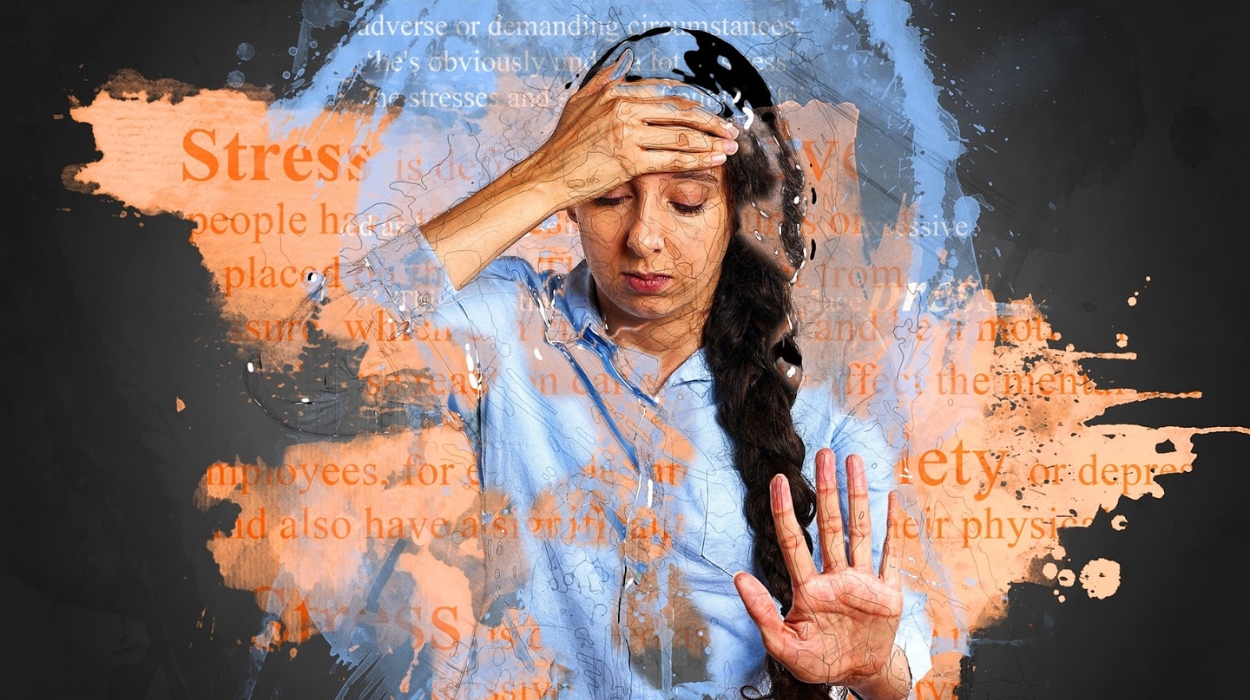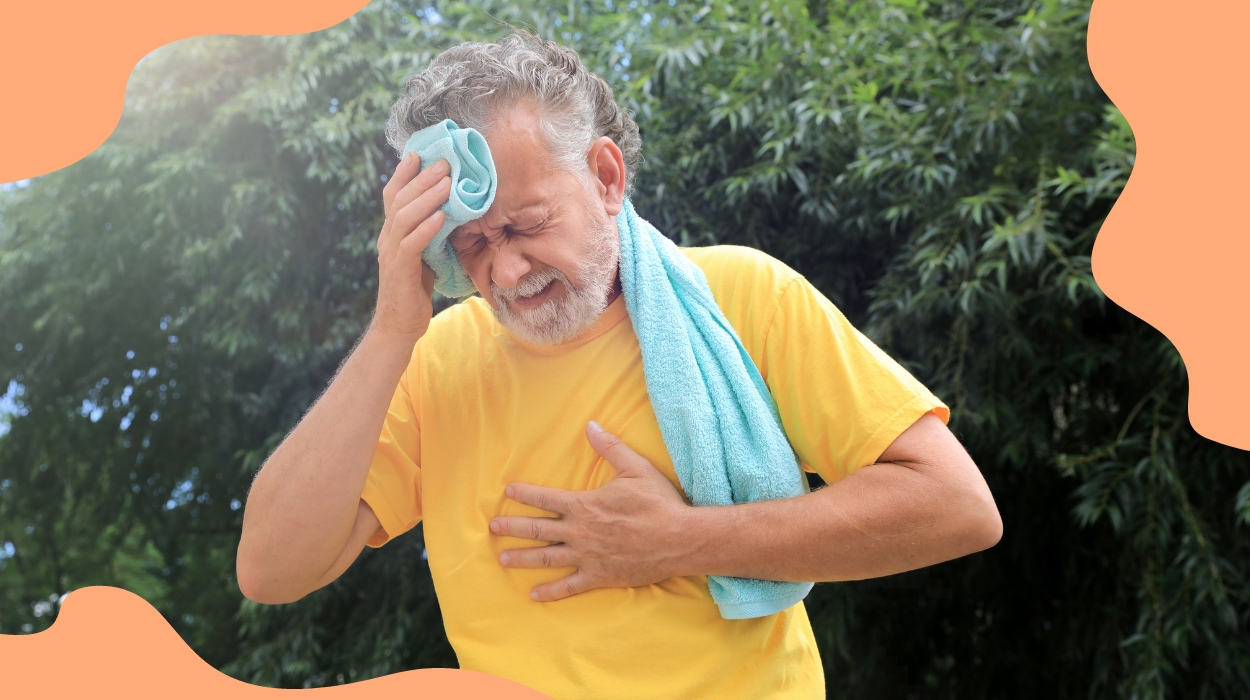Palpitations occur when the heart races and pounds. Exercise or exertion increases the need for oxygen around the body. Consequently, the heart beats more quickly. Each beat supplies blood, so more beats mean more blood to the muscles. However, this additional blood is sometimes unnecessary. Certain illnesses and the medications to treat them also cause palpitations. Additionally, common compounds like caffeine and illicit substances like cocaine cause them.
Anxiety – the fear or nervousness we attach to certain situations – also causes palpitations. It evokes our fight-or-flight response, increasing blood to the muscles by raising the heart rate. Stressful situations rarely require a fight-or-flight response; therefore, the palpitations are unnecessary. Nevertheless, our bodies respond the same way. Understanding how stress causes palpitations and how to manage them is necessary to feel less anxiety about this symptom, which is important because the fear of anxiety can itself become a cause of anxiety-induced palpitations.
How To Stop Anxiety-Induced Heart Palpitations?
Key to reducing anxiety-induced heart palpitations is relieving stress.
- Reduce Stress
- Exercise Regularly
- Try Breathing Exercises
- Talk to Someone
Heart Palpitations Caused By Anxiety
Anxiety causes palpitations via the fight-or-flight response. Regardless of the source, anxiety causes the release of stress hormones, preparing us to take action for survival. Adrenaline and noradrenaline are released into the bloodstream and increase the blood pressure. Greater blood flow to the muscles prepares us for fighting or fleeing while withdrawing blood from organ systems not necessary for our response. As a result, our heart rate increases in frequency and intensity, resulting in palpitations.
Are Anxiety-Induced Heart Palpitations Dangerous?
The mere fact that someone experiences a racing or pounding heartbeat in the absence of a stimulus is often enough to send him or her to an emergency room in fear of a heart attack. That chest pain sometimes accompanies anxiety-induced heart palpitations makes seeking medical care even more likely. However, on their own, anxiety-induced heart palpitations are not dangerous – just uncomfortable. In people with pre-existing heart conditions in whom an increased heartbeat should be avoided, and heart palpitations are the reason for concern, including those induced by anxiety, but in healthy people, heart palpitations can be tolerated until interventions are undertaken to alleviate them.
3 Natural Treatments For Fast Heartbeat

Reduce Stress
Anxiety is often a reaction to stress in our lives. One way to reduce anxiety and thereby avoid heart palpitations is by reducing stress. There are many ways to reduce stress. For instance, just getting enough sleep can help us manage stress. In addition, managing our time more effectively and taking time out to relax are important stress-reduction techniques.
Exercise Regularly
Not only does regular exercise also help to reduce stress and anxiety, but it is also effective at reducing the resting heart rate in general. The healthier one’s heart is, the more likely it is that the heartbeat is regular and slow. Regular exercise, therefore, is doubly beneficial to those with anxiety-induced heart palpitations.
Try Breathing Exercises
Another way to address anxiety-induced heart palpitations is to address the cause rather than the symptom. For centuries, certain cultures have known that deep breathing can relieve stress, induce relaxation, and thus alleviate palpitations. Try breathing in through the nose and out through the mouth as slowly and regularly as you can. It might take practice and time to see results, but breathing exercises are often foundational to an approach that relieves palpitations.
Talk to Someone
A panic or anxiety disorder is best treated by a professional therapist and sometimes with medications. However, not all anxiety is indicative of a disorder, and sometimes the simplest solution is to talk about our feelings with orders. Often, anxiety is less a reaction to stress and more a reaction to not being able to express the stress that we are feeling. Talking to a friend or loved one about the stress that we are experiencing can provide a much-needed sense of relief.
Lifestyle Changes
You might try reducing or eliminating your intake of any foods, drinks, or substances that increase the likelihood of anxiety and/or an increased heart rate. These things include, but are not limited to, caffeine in tea, coffee, and many sodas; nicotine in cigarettes and vape pens; and drugs like methamphetamine and cocaine. Exercising more regularly is always beneficial provided you are in good enough health and can result in a lower resting heart rate in general. Finally, stress-reduction techniques and deep-breathing exercises have proved very helpful in many people in reducing anxiety and the palpitations associated with it.
Recognize Heart Palpitations & Chest Pain
Because heart palpitations increase the flow of blood to the skeletal muscles, there is greater muscle tension as a result. Sometimes this increased tension can result in pain. When this pain occurs in the chest, it can be frightening. Because chest pain can also be a symptom of a severe problem, it should always entail a trip to an emergency room. The embarrassment you might feel as a result of being diagnosed with anxiety-induced palpitations rather than a more serious problem is worth it to be on the safe side.
When Should I See A Doctor?
As stated above, chest pain is a sign that you should see a doctor immediately. It’s far better to be safe than to be sorry. Additionally, if you experience dizziness or you faint while experiencing palpitations, you should seek medical help as soon as possible. If you experience palpitations without pain, dizziness, or fainting and in the absence of any exertion, try some of the techniques mentioned here. If they don’t work, visit your doctor to eliminate any medical cause. In some cases, talking with a therapist or counselor can often help greatly.
Conclusion
Anxiety-induced palpitations are not dangerous and can be treated at home using natural methods. Reducing stress, exercising regularly, and practicing deep breathing are among the many methods used to manage this symptom. If you find you are unable to manage the symptom on your own, see a doctor or therapist.
Frequently Asked Questions
Unless you have a pre-existing heart condition, anxiety-induced heart palpitations are not dangerous. Chest pain is a reason to see a doctor as soon as possible, but in the absence of heart disease, palpitations can be alarming but will not cause any harm.
See a doctor if you still have symptoms despite using one or several of the methods mentioned here to manage them. A doctor can rule out a more serious medical condition that might be causing both anxiety and palpitations. A therapist or counselor can help you manage them.
